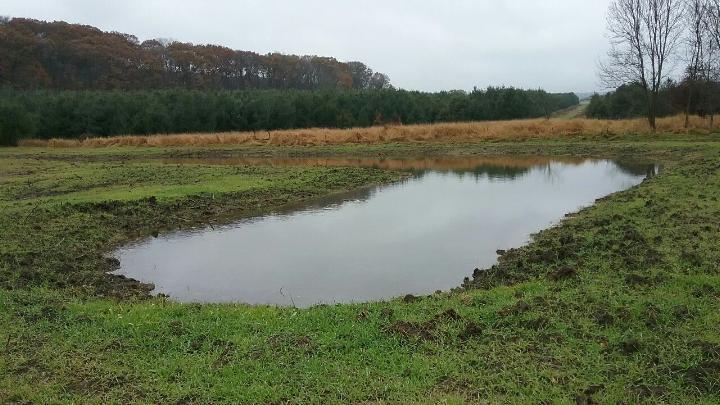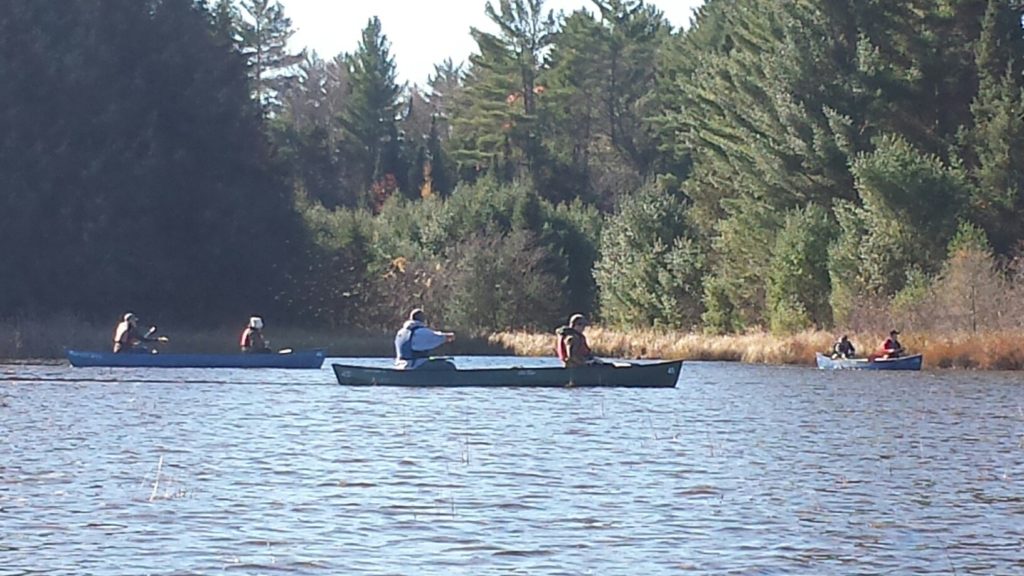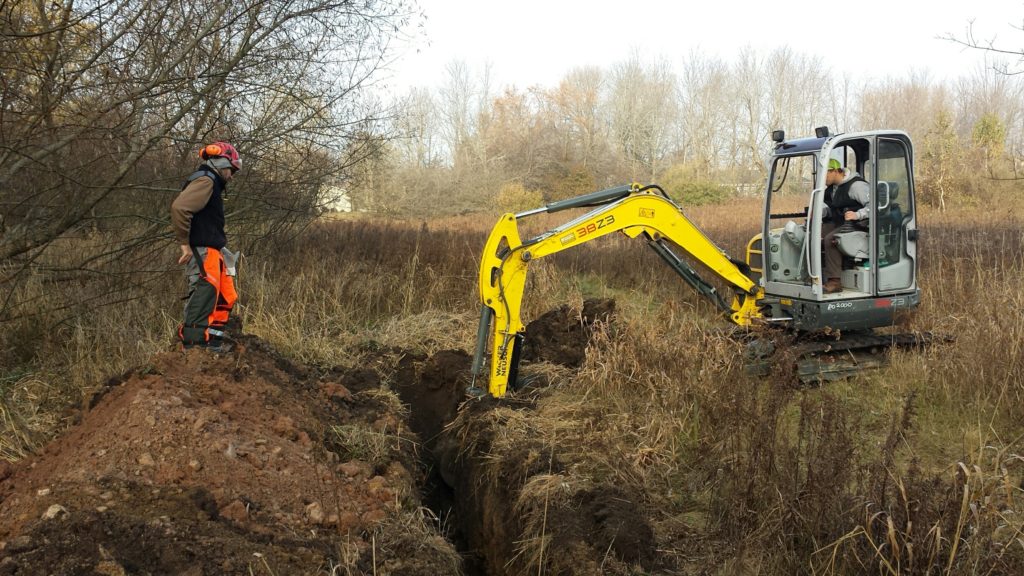Project: Multiple
County: Columbia, Dodge, Washington and Vilas
Project Start Date: 11/01/2017
Project End Date: 11/30/2017
By Peter Ziegler, WWA Project Director
WWA wrapped up a few projects in Columbia, Dodge and Washington Counties this past month and I also made it up to the Eagle River area to lead a group of high school students through the woods and onto the water. In Dodge County we had a small basin with a ditch plug, which will increase opportunity for nesting waterfowl and probably will be a good wood duck spot in the long run.
In Columbia county we opened up an old oxbow along the Baraboo River and let me tell you, if you know anything about that river, there is no shortage of old oxbows. Oxbows form over time as the river naturally changes course. The sharp “U” shaped corners of many meandering rivers and streams eventually cut themselves off at the bottom by creating a new river channel and slowly filling in the old corner or oxbow with sediment. This has been happening for millennia and will continue to happen; most noticeable changes occur after large flood events. The sandy soils along the Baraboo River make it a prime river for channel changes which create these eventually disconnected oxbows. Take a look at an air photo of the lower portion of the Baraboo River where it meets the WI River and you can easily see numerous old river channel oxbows indicating where the river once flowed.
Recently completed project in Columbia County, this historic oxbow was restored as an offline floodplain wetland of the Baraboo River, restoring habitat diversity.

Recently completed project in Columbia County, this historic oxbow was restored as an offline floodplain wetland of the Baraboo River, restoring habitat diversity
Once again we were able to continue our wild rice seeding efforts in northern Wisconsin. This year we worked with the ecology class from Northern Pines School in Eagle River to help seed an historic rice lake where it had disappeared. I literally lead them through the woods (a beautiful mature hemlock forest) to the canoe launch site where we casted 150 pounds of locally collected wild rice.
Also, earlier this month we helped the City of Port Washington disable a tile line in their Birchwood Hills park as part of their larger plan for restoration of the site for education and public access. The small wetland restoration will help with flooding, increase wetland dependent species and reduce a point source discharge, improving water quality to the creek and ultimately Lake Michigan located about 1 mile down stream of the site.


